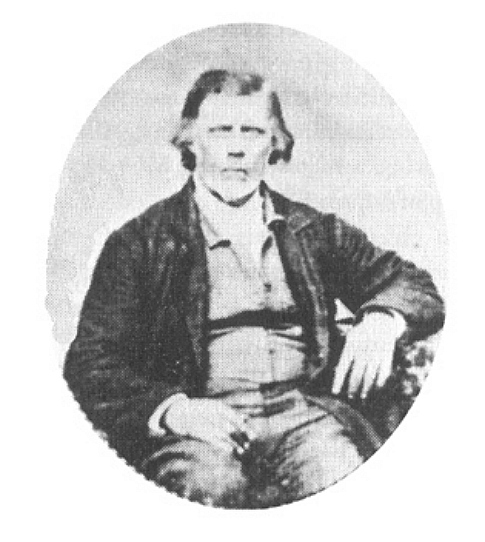To accompany your Come Follow Me study for October 6-12
In addition to reading these sections you will want to read:
- Chapter 44: Doctrine and Covenants 111–114 (churchofjesuschrist.org)
- Joseph Smith’s Revelations, Doctrine and Covenants 111 (churchofjesuschrist.org)
- Joseph Smith’s Revelations, Doctrine and Covenants 112 (churchofjesuschrist.org)
- Joseph Smith’s Revelations, Doctrine and Covenants 113 (churchofjesuschrist.org)
- Joseph Smith’s Revelations, Doctrine and Covenants 114 (churchofjesuschrist.org)
- “More Treasures Than One,” Revelations in Context, 229–34.
- “The Faith and Fall of Thomas Marsh,” Revelations in Context, 54–60.
You may also enjoy the following video:
If you would like a Kahoot game related to these sections which you could use with your family or your class, or which you could play or learn from individually by converting it to a “Challenge” version, click here: https://create.kahoot.it/share/doctrine-and-covenants-111-114/6f4b205b-e149-474f-80a5-c5b5d3907ec3. To use it with a group, after clicking on this link, you will need to log into Kahoot, creating a free account if you have not done so previously, then click on the blue “Host Live” button or the gray “Assign” button, depending on how you wish to use the Kahoot. Some of the Kahoot questions may presuppose that the player has read through the suggested answers to the following Points to Ponder and at least has browsed the Institute student manual as well.
Points to Ponder in Doctrine and Covenants 111-114
1. How can you justify Joseph Smith in traveling several hundred miles in a search for hidden treasure? Doesn’t this just confirm our critics’ contention that he was just a money digger after all?

2. How could 111:8 be helpful to one who was still learning how to recognize promptings of the Holy Ghost?
3. In view of the fact the Lord did not help Joseph Smith find the treasure he was looking for in Salem, what did the Lord apparently have in mind in 111:10 with His reference to “more treasures than one”?
4. What does the Lord mean in 111:11 that He would order all things for their good “as fast as [they were] able to receive them”? Why is there a limit on how fast we can receive blessings?

5. Why would the Lord tell Thomas B. March in 112:5, “Contend thou … morning by morning,” when elsewhere He tells us that “contention … is of the devil”? (3 Nephi 11:29.)

6. What do you consider the two most personally relevant ideas in D&C 112?
7. How literally should missionaries take the injunction in 112:5 to “let not the inhabitants of the earth slumber, because of thy speech”? Is it really okay to knock on a stranger’s door after 10:00 p.m. or to use an amplifier to teach a missionary lesson to hapless non-members with inadequately soundproofed walls from a street corner at all hours of the night?

8. The rest of the Christian world sees Isaiah 11:1-5, speaking of the “rod” and “root” to come out of the “stem of Jesse,” as referring specifically and uniquely to Jesus Christ, who was a descendant of David, the son of Jesse Furthermore, Romans 15:12, Jeremiah 23:5, Revelation 5:5, and Revelation 22:16 seem to agree. To whom do Latter-day Saints believe it refers, and why?

9. What are two possible explanations for why, in spite of 1 Ne. 3:7, the Lord didn’t enable David Patten to fill the mission he said in D&C 114 he was to fill?
Possible Answers to Points to Ponder in Doctrine and Covenants 111-114
1. How can you justify Joseph Smith in traveling several hundred miles in a search for hidden treasure? Doesn’t this just confirm our critics’ contention that he was just a money digger after all?
The Lord had promised in 104:78-80 to enable the Church leaders to pay their debts, and someone had told him of hidden treasure in Salem that could be available to the finder. Joseph had grown up in a culture steeped in a tradition of searching for buried or hidden treasure and may have assumed that this would be the Lord’s way of fulfilling His promise. After all, he was looking for the treasure for the benefit of the Church, not his personal comfort. Though the Lord taught Joseph in D&C 111 that this was a foolish idea, He told him He was not displeased with his making the effort. Even prophets learn line upon line and by trial and error on occasion, and there was a promise of “more treasures than one” for them in Salem.
2. How could 111:8 be helpful to one who was still learning how to recognize promptings of the Holy Ghost?
The feelings brought by the Spirit of the Lord are typically both “peaceful” and “powerful,” as this passage indicates. A feeling that was only powerful but not peaceful, or “peaceful” but in a more lethargic sense, could quite likely be from another source.
3. In view of the fact the Lord did not help Joseph Smith find the treasure he was looking for in Salem, what did the Lord apparently have in mind in 111:10 with His reference to “more treasures than one”?
Perhaps:
- Future converts
- Genealogical records
4. What does the Lord mean in 111:11 that He would order all things for their good “as fast as [they were] able to receive them”? Why is there a limit on how fast we can receive blessings?
As we are sent to this life in part to learn to live by faith, it would be detrimental to us to have spiritual blessings poured out on us in such abundance that we could no longer easily develop that faith. Likewise, temporal riches, bestowed too soon, could interfere with our developing patience, learning how to sacrifice, and learning and how to sympathize with others in need.
5. Why would the Lord tell Thomas B. March in 112:5, “Contend thou … morning by morning,” when elsewhere He tells us that “contention … is of the devil”? (3 Nephi 11:29.)
This illustrates two quite different meanings of the word “contend,” of course. In the first case, the Lord is telling Thomas to work hard—to “contend” against evil, laziness, opposition, etc., but not against people. The “contention” of which He warns us in 3 Nephi is that of arguing and fighting with other people, a manifestation of hatred, not of love.
6. What do you consider the two most personally relevant ideas in D&C 112?
Your choice. I would pick:
- v. 10, which used to be a Young Men’s and Young Women’s theme, recited weekly
- v. 25-26, warning faithless members of the coming judgment which is to begin among the Latter-day Saints, who having been given much have greater obligations
- v. 33 is also a good one, reminding us of the greatness of our callings and the importance of cleanliness before the Lord.
7. How literally should missionaries take the injunction in 112:5 to “let not the inhabitants of the earth slumber, because of thy speech”? Is it really okay to knock on a stranger’s door after 10:00 p.m. or to use an amplifier to teach a missionary lesson to hapless non-members with inadequately soundproofed walls from a street corner at all hours of the night?
Missionaries who take this instruction literally at all are likely to get a quick interview with the mission president and a transfer as far away as he can send them. The Lord is simply using this language symbolically to try to help Thomas B. Marsh understand the urgency of the work. But literally knocking on doors after normal hours or making a nuisance of themselves is one sure way to make missionary efforts totally counterproductive.
8. The rest of the Christian world sees Isaiah 11:1-5, speaking of the “rod” and “root” to come out of the “stem of Jesse,” as referring specifically and uniquely to Jesus Christ. Jesus was a descendant of David, the son of Jesse Furthermore, Romans 15:12, Jeremiah 23:5, Revelation 5:5, and Revelation 22:16 seem to agree. To whom do Latter-day Saints believe it refers, and why?
D&C 113 leaves the matter somewhat unclear. Many Latter-day Saint commentaries on the Doctrine and Covenants accordingly avoid proposing a definitive interpretation to a matter on which the Lord has chosen to remain ambiguous.
Section 113 contains answers to questions about Isaiah 11, which were recorded in Joseph Smith’s “Scriptory Book,” by his clerk, George W. Robinson. It implies but does not specifically say that Joseph Smith was the source of them. The “answers” clearly agree that verses 1-5 refer to Christ. But unlike the apostle Paul, they seem to differentiate between the Savior Himself and the “rod” or “root” mentioned in verses 1 and 10, respectively. These are interpreted to refer to a latter-day servant of the Lord, descended partly from Jesse (of the tribe of Judah) and partly from Ephraim, on whom would be laid much power and priesthood keys and who would promote the gathering of the Lord’s people. Sidney B. Sperry proposed that the servant was Joseph Smith himself. Our Come Follow Me manual agrees that the description given would fit Joseph Smith nicely, though it stops short of specifically insisting on that as the one and only authoritative interpretation.
Were we to be dogmatic that Isaiah was speaking of Joseph Smith in his 11th chapter, it would no doubt subject the Church to additional ridicule from those who are certain that he was not. And it would do nothing to advance the Lord’s latter-day work. We can look forward in eternity to asking Joseph Smith if he now has any further clarifications or amplifications to make about Isaiah 11 beyond those attributed to him in D&C 113.
9. What are two possible explanations for why, in spite of 1 Ne. 3:7, the Lord didn’t enable David Patten to fill the mission he said in D&C 114 he was to fill?
- It doesn’t say he would fill a mission, only that he was to prepare to do so.
- He did fill a mission–but in the spirit world.
